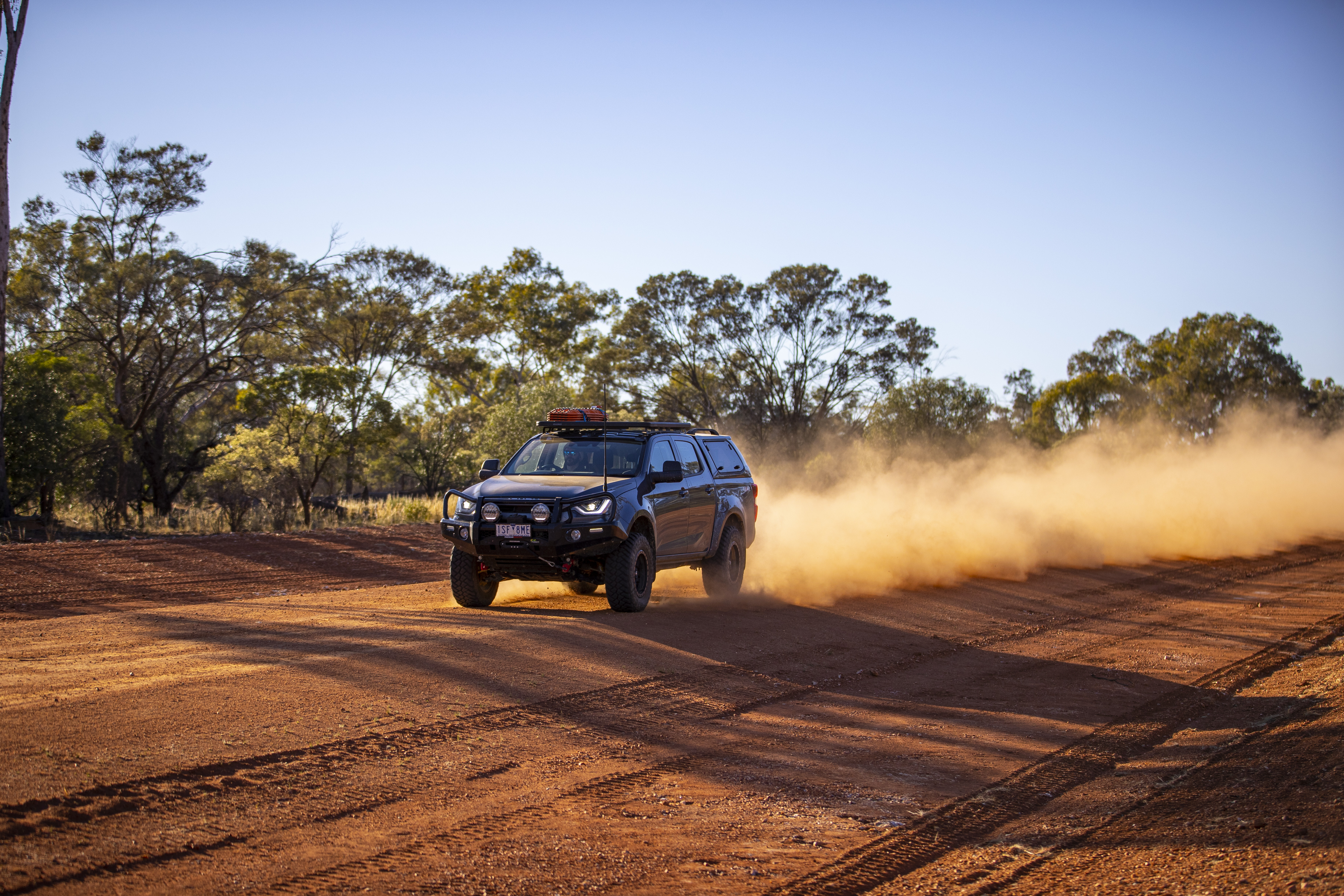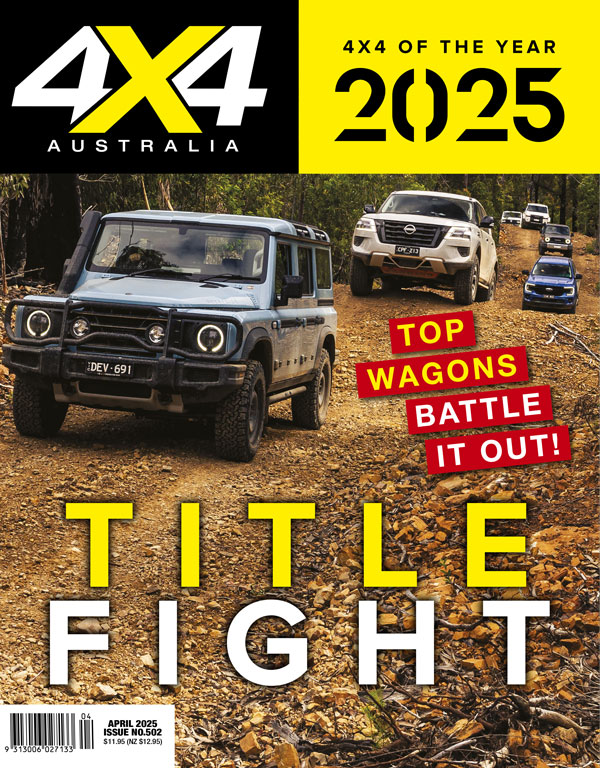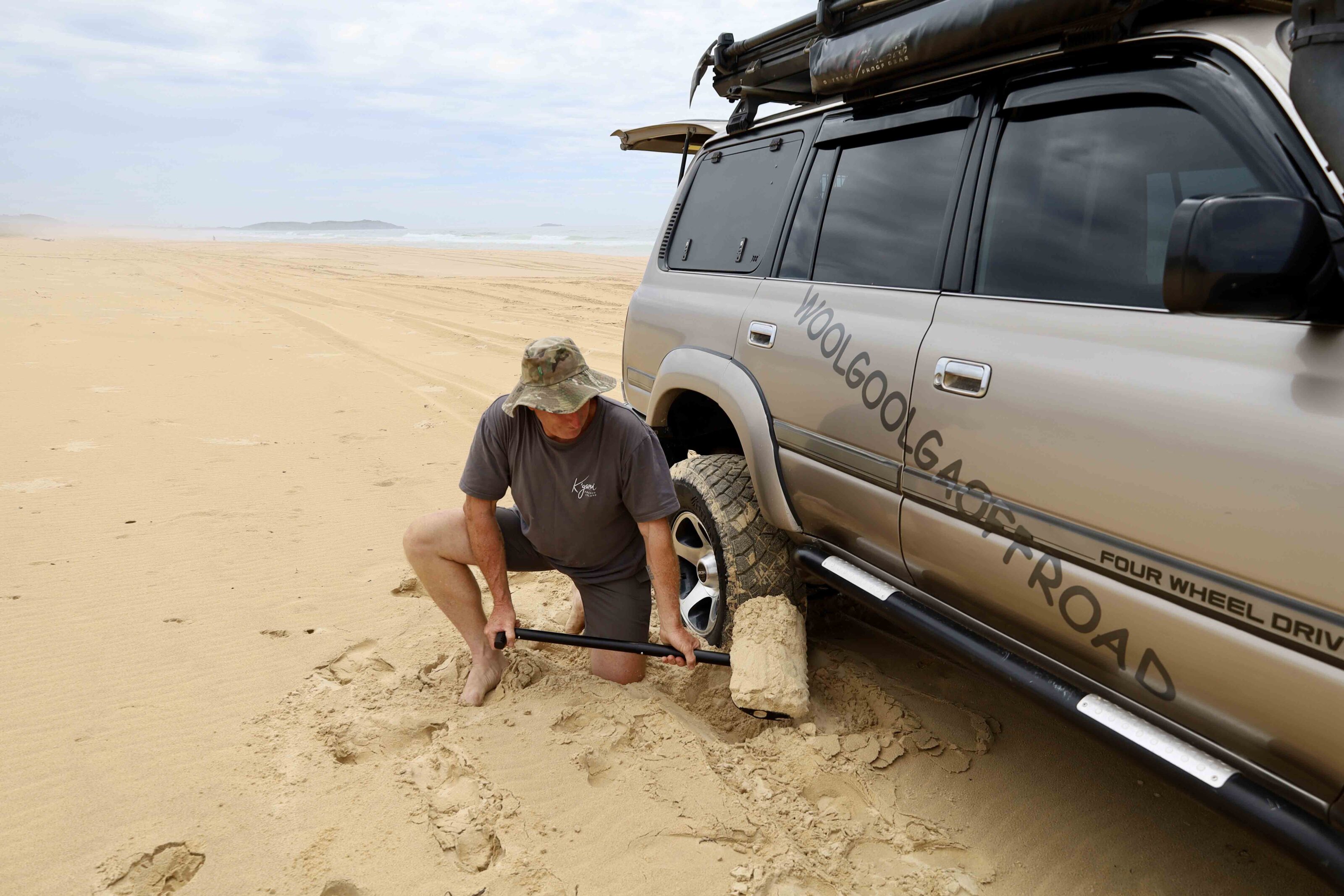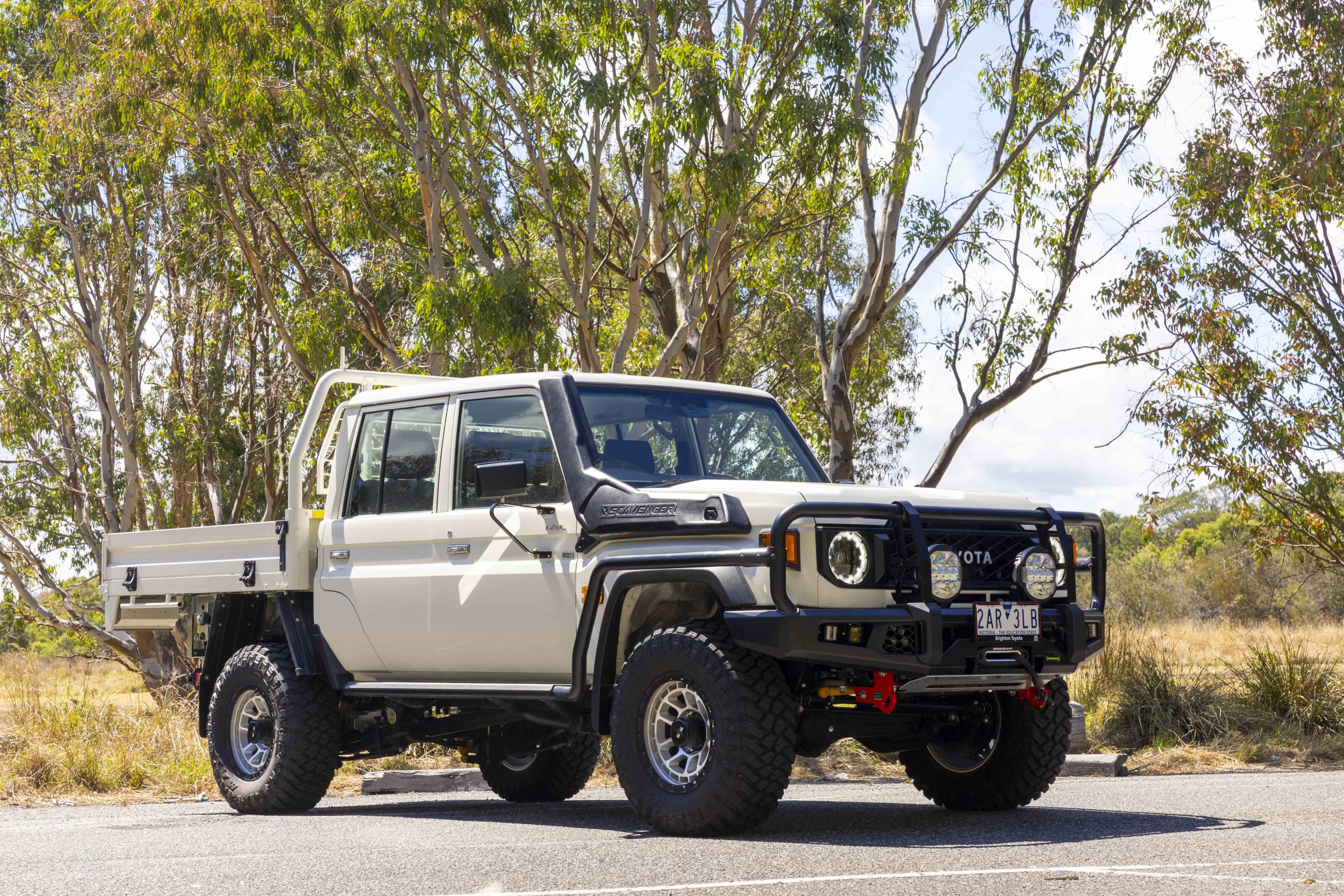Upgrading the performance of turbo-diesel four-wheel drives is big business, with nearly every man and their dog offering a product or solution spruiking big claims of more power and better fuel economy. The good news though, is these days there is so much information and knowledge out there on this topic, however on the flip side, the bad news is it’s not always easy to find the right information or people to handle this task safely and reliably.It’s not all doom and gloom though, as we’ve enlisted the help of two extremely talented and experienced off-road specialists to cut through the bull and give you solid information to better make the right decision for your needs and vehicle.
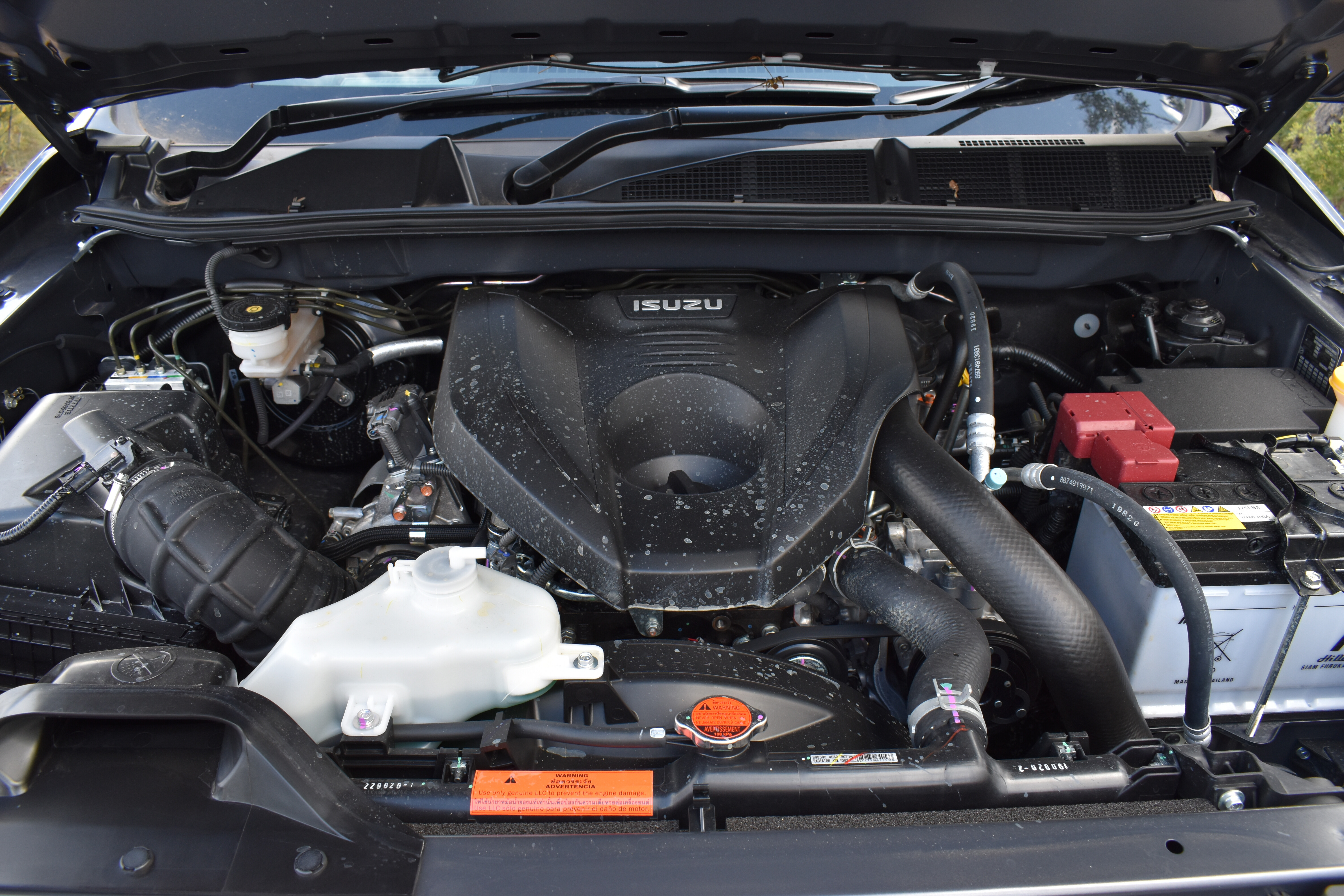
For this article, I tracked down two qualified mechanics who specialise in diesel tuning for a good old Q&A session. I know these fellas and have trusted them to work on my own vehicles. Giving us their pearls of wisdom, we have Stephen Houghton (Stevo as he’s better known), owner of Queensland’s Coolum Motors and CRDTech Tuning; and Steve Etcell, owner of AE-CO 4X4 in Riverstone (NSW) who specialises in everything 4×4 including diesel engine conversions, performance upgrades and custom fabrication.These aren’t keyboard warriors, these experts are super experienced in the field and practise what they preach by building and racing high-performance diesel-powered 4WDs. We sat down with these absolute champions who were kind enough to give us their time, and asked them the same questions to see what they feel works and what you should avoid, as well as seeing if they agree with each other on the right and wrong ways to make more power from your turbo-diesel 4×4.
What are performance chips, how do they work and what are their pros and cons?
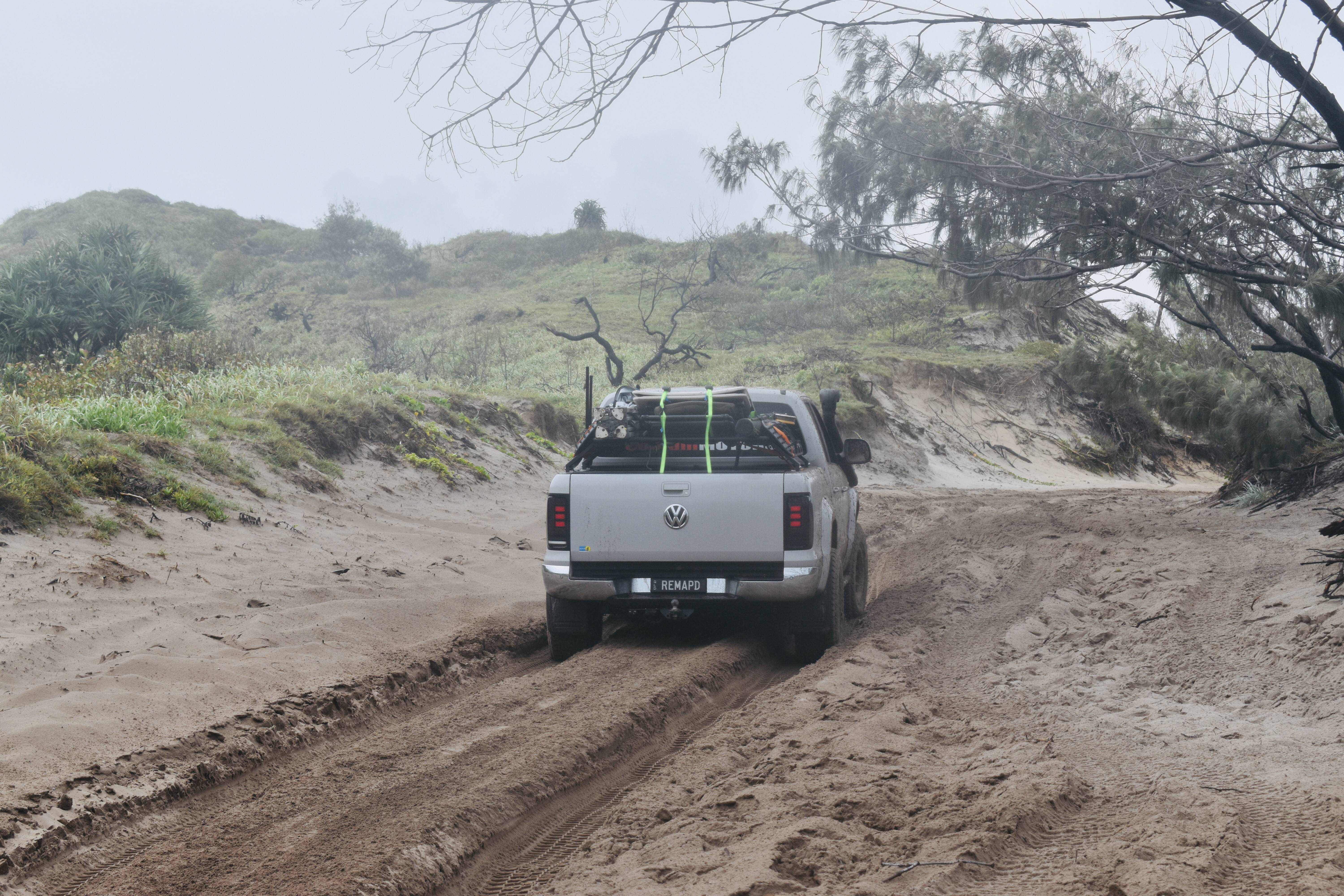
STEPHEN HOUGHTON: “Performance plug-in chips come in a range of different options, most are basic and alter the signal back to the ECU to mainly raise fuel rail pressure. This is very old technology, and generally if something goes wrong in the chip, the ECU has no idea and will keep adding fuel until catastrophic failure occurs.”Pros: “Not many … they are easily removable I suppose, which is a pro.”Cons: “Lots.”STEVE ETCELL: “Performance chips are generally a plug-and-play item that requires no tuning and may have a small amount of user adjustability.”Pros: “They are easy to fit at home.”Cons: “Conservative performance gains, limited adjustability, not suited for high-power or heavily modified engine set-ups.”
What are performance modules, how do they work and what are their pros and cons?
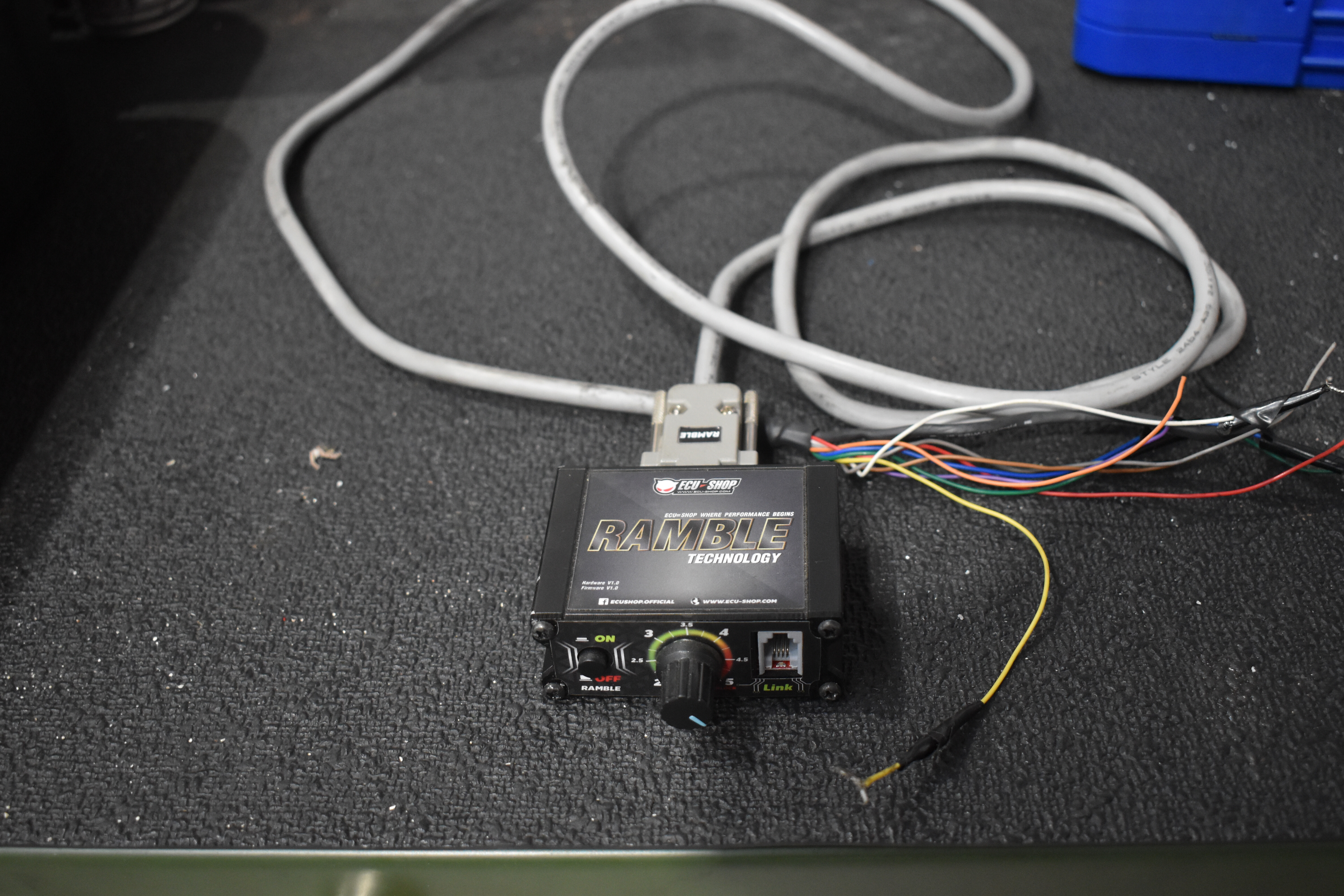
STEPHEN HOUGHTON: “Performance modules are mostly plug-and-play piggyback ECUs, they are either STS (Straight To Sensor) or some are hardwired. These units also mainly trick the ECU by altering the signals to and from the various sensors being utilised. They are mostly live-tuned on the dyno, which gives the tuner real live-control over the vehicle.”Pros: “Live tuning is heaps easier and quicker than altering the ECU software.”Cons: “You are limited in what you can change.”
STEVE ETCELL: “Performance modules are generally a tuneable device that is best installed and set up by a professional on a dyno, and then tuned to suit your specific vehicle and modifications.”Pros: “They are customisable depending on specific vehicle requirements, can offer significant safe gains.”Cons: “Slightly more expensive than a generic chip.”
What is a custom ECU tune, how do they work, what are the pros and cons?
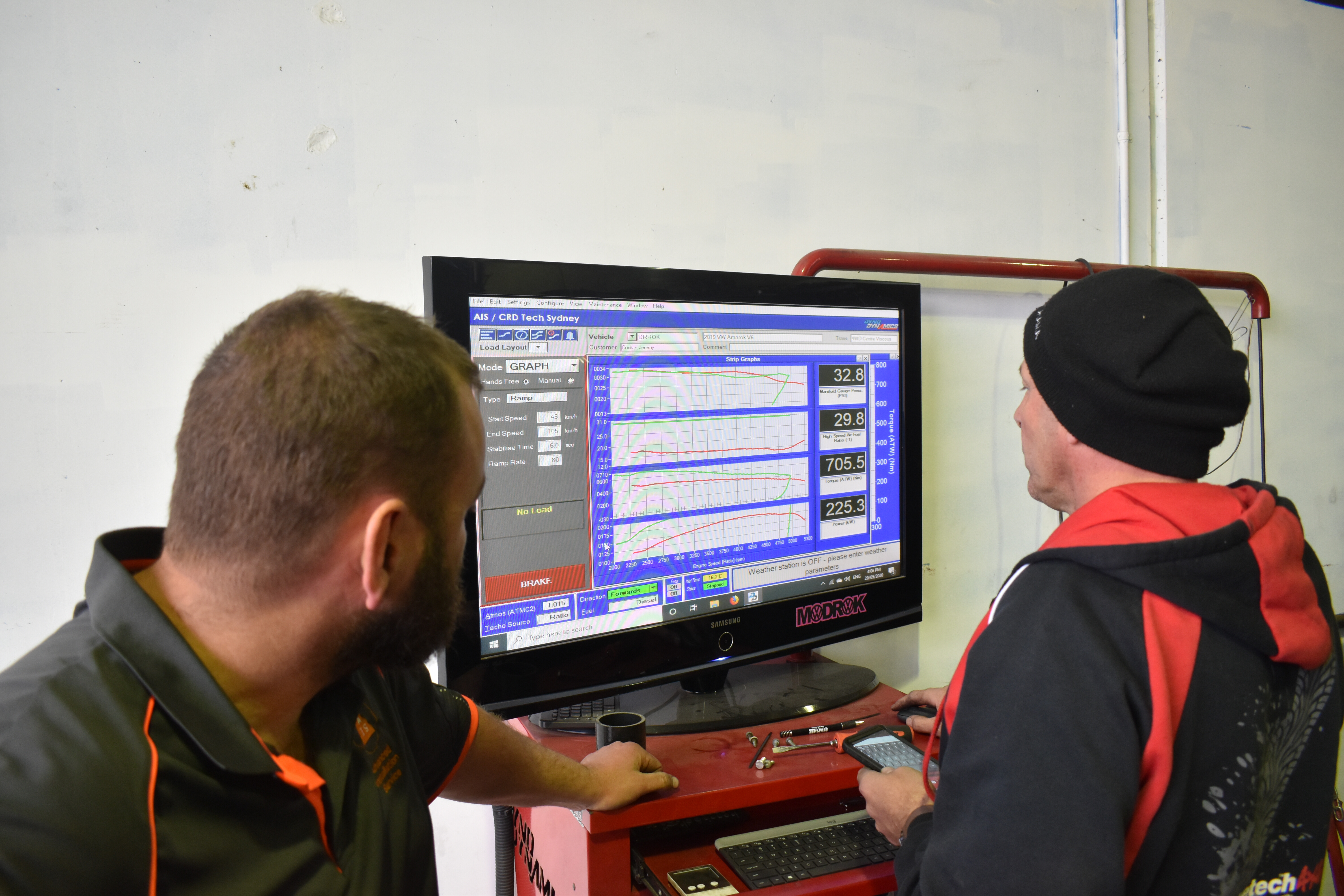
STEPHEN HOUGHTON: “Custom ECU tunes are where the vehicle is read either through the OBD port on the vehicle or by pulling the ECU out and reading on the bench. The file is then altered in a software program by changing a multitude of maps, then reloading on to the vehicle.”Pros: “Much better control over the vehicle mapping and power delivery, can custom tune for turbo or injector upgrades and so on.”Cons: “The file must be altered and reloaded on to the vehicle every change you make. There are also lots of cheap files being bought and loaded on to vehicles for ‘pub sheet dyno runs’ – it pays to use a reputable tuning expert who can back up their claims. It is also very expensive for the tuner if it is done correctly, there’s a huge cost of hardware and software required to do the job right.”STEVE ETCELL: “Custom ECU tuning is the modification of the factory vehicle’s Engine Control System using specialised programs that are able to read and write vehicle-specific code, allowing the tuner to change engine parameters and increase power and torque.”Pros: “Allows retention of factory engine safety features, with decent power increase results found with most vehicle makes and models.”Cons: “They can cause warranty issues on new cars, not easily reversed without a trace, they also aren’t suited as well for super high-performance applications.”
How much money should you expect to pay for each?
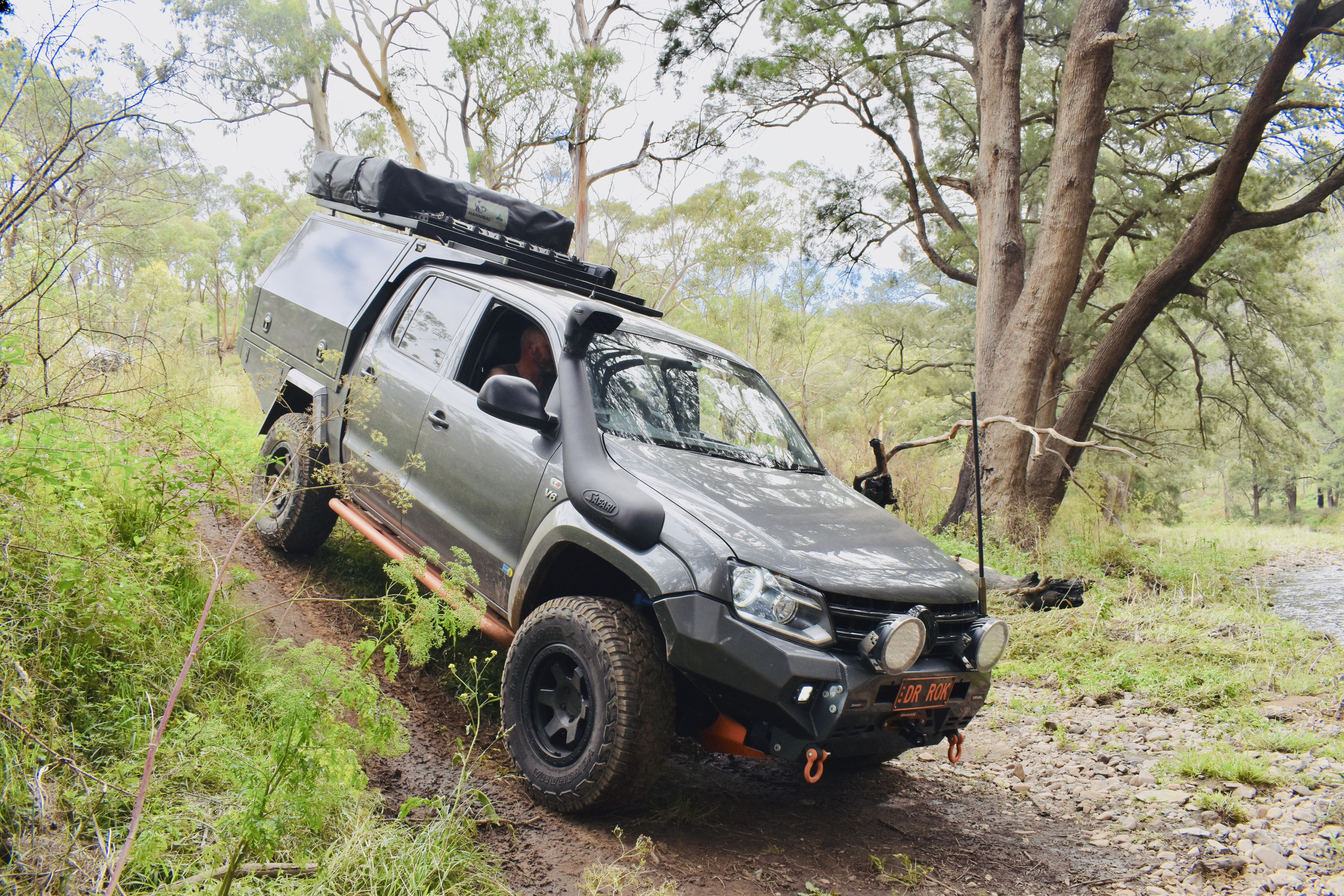
STEPHEN HOUGHTON: “For basic chips, expect to pay up to $1500 to $2000. Performance modules go for between $1800 and $3000. Dyno tunes will cost, from experience, between $1000 to $2000 for straight tunes I have seen and done; a full custom job with upgrades, turbo upgrades and injectors, expect upwards of $2000.”STEVE ETCELL: “From what I see, chips go for between $800 to $1500. Performance modules budget for around $1200 to $3000 and up. ECU remaps, depending on the work involved, budget $1200 to $1800.”
Are exhaust upgrades worthwhile. If so, when and why?
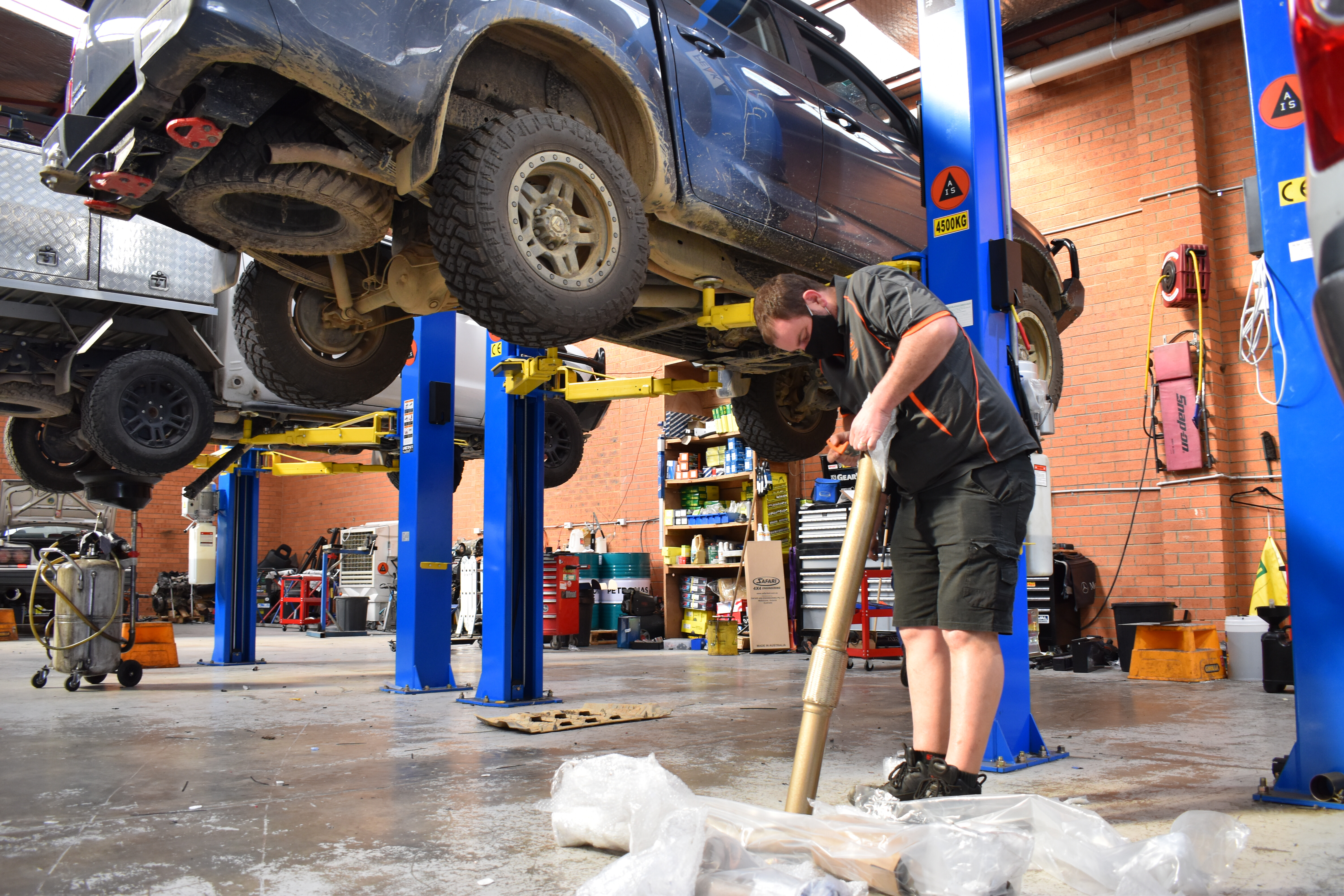
STEPHEN HOUGHTON: “On pre DPF (Diesel Particulate Filter) equipped vehicles, I say yes. Larger diameter free-flowing exhausts can help get heat out of exhaust system faster, lowering engine temps as well as EGTs (Exhaust Gas Temperatures), and you generally see gains in low-down torque from a full system when we put it on the dyno. Vehicles with DPFs, we don’t see big gains from fitting exhaust upgrades, these are mainly installed to change the sound of the exhaust.”STEVE ETCELL: “For standard set-ups, generally speaking an exhaust upgrade isn’t required. For more highly modified or custom set-ups where people are chasing higher gains though, generally speaking an upgraded exhaust system becomes worthwhile. This really is vehicle-and-needs specific though, as some vehicles come from the factory with decent exhaust designs and sizes, others are straight-up awful and we do see benefits when upgraded.”
Are turbo upgrades worthwhile. If so, when and why?
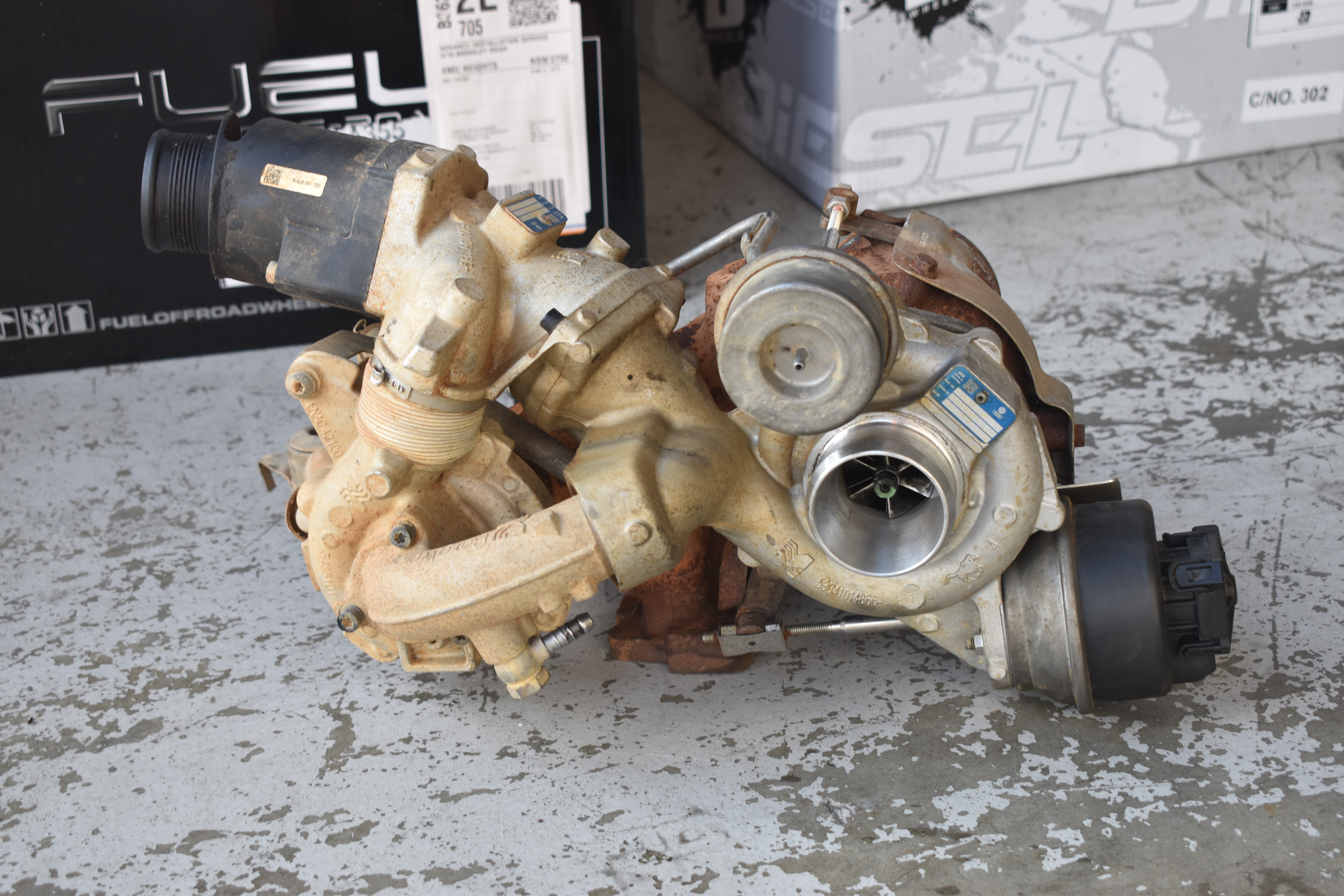
STEPHEN HOUGHTON: “Turbo upgrades are definitely worthwhile if you are towing heavy loads regularly, and if you want more torque and power than can be safely offered by the factory turbo. For vehicles that are used for towing, by installing a high-flow turbo you will see lower EGTs (Exhaust Gas Temperature – tuner and power output dependant) as the airflow in to the engine increases, in turn lowering AFR (Air Fuel Ratios). These are two very important aspects of engine tuning and performance upgrades to get right, and I definitely think there are advantages to fitting a turbo upgrade for those reasons.”STEVE ETCELL: “This really depends on the vehicle and end use of the vehicle. For a daily driver that doesn’t tow heavy loads or doesn’t need to work hard, I’d say, generally speaking, no. For a four-wheel drive that needs to make more power to do the job the owner requires, then yes. The best thing, these days most models have direct bolt-on upgrades from mild-to-wild, so it all comes down to your end use and goals.”
Are injector upgrades worthwhile? If so, when and why?

STEPHEN HOUGHTON: “Injector upgrades are really only worthwhile if you are chasing a lot more power over an ECU tune. Larger injectors work by mechanically allowing more fuel in to the engine rather than trying to hold the injector open longer in the software.”STEVE ETCELL: “Generally, injector upgrades are only done once a turbo upgrade is completed, if you have more air, you can add more fuel without causing yourself grief with engine failure. In some cases, depending on turbo size, injector upgrades actually become a requirement to help spin the bigger turbo.”
Are intercooler upgrades worthwhile. If so, when and why?
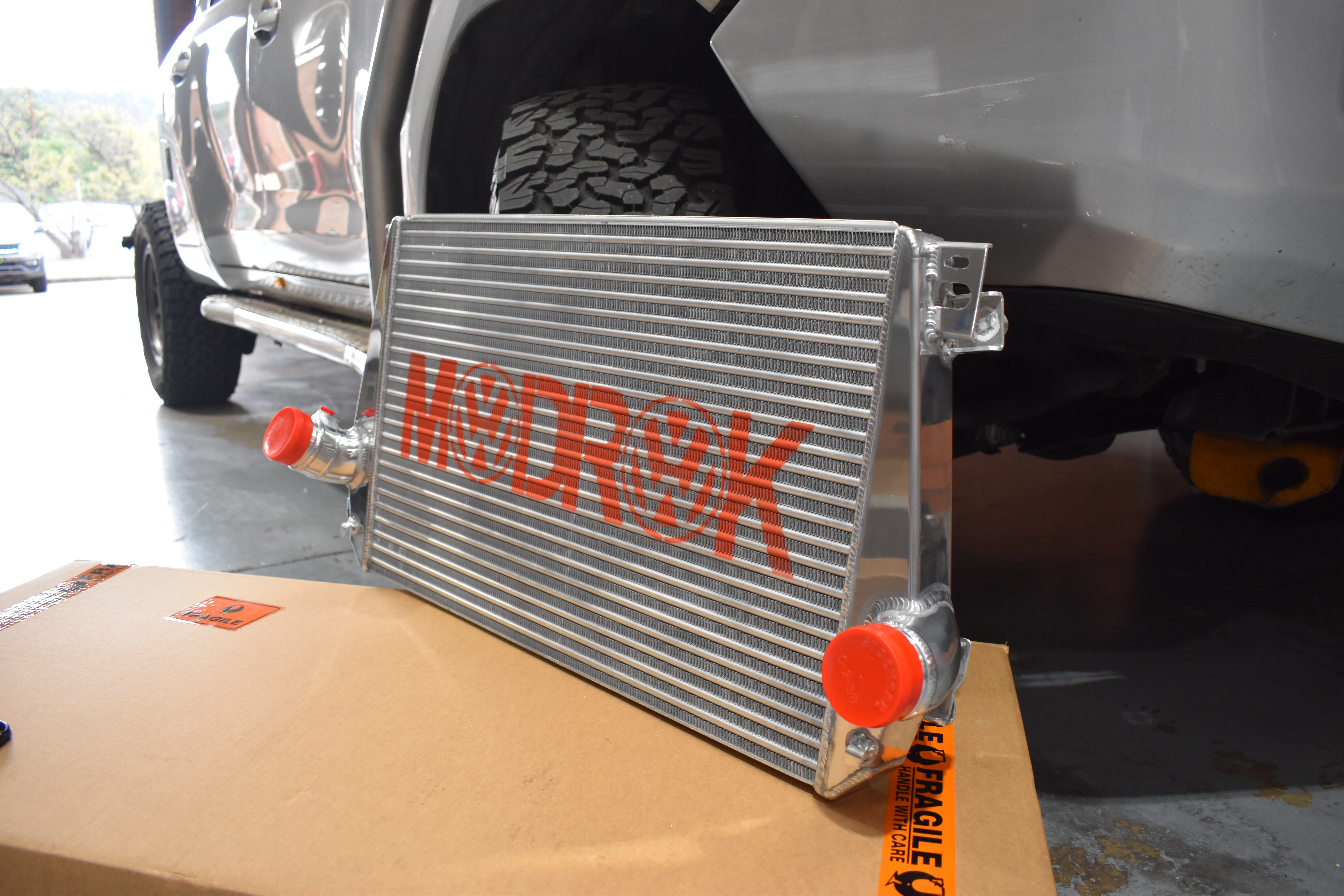
STEPHEN HOUGHTON: “Intercooler upgrades are good in many applications; towing and performance enhancing are the two most popular reasons we upgrade intercoolers. If towing, upgraded intercoolers will lower intake-air temps and provide denser air going in to the engine, which in turn results in lower temps all ’round. Performance wise, most aftermarket intercoolers have welded end tanks instead of weaker crimped end tanks, lessening the likelihood of them leaking.
“Intercooler upgrades will also allow you to push the vehicle harder, as the increase in air volume will lean out the extra fuel. Adding a larger intercooler without any tuning will not add an unbelievable amount of power to your engine, despite the increased oxygen and theoretical increase in performance. The charge air temperature will be lower resulting in denser air, but the larger intercooler can add a slight amount of drag which can somewhat negate any power gains. The real benefits come if you combine this intercooler system with some engine tuning.”STEVE ETCELL: “In factory applications, speaking generally, no. But with more power, you would be crazy not to upgrade to a larger intercooler. We have seen significant gains in torque and fuel economy from getting that intake-air nice and cold. With more boost comes more heat, and this heat increase needs addressing. Also, something to remember is where you regularly drive impacts how important this upgrade can be. Driving at 110km/h on the highway is very different to crawling at 20km/h fully loaded through soft sand at the beach. If you tend to work the car hard with no airflow, bigger is better when it comes to intercoolers.”
If undertaking these performance upgrades, what is the ideal order to install them?
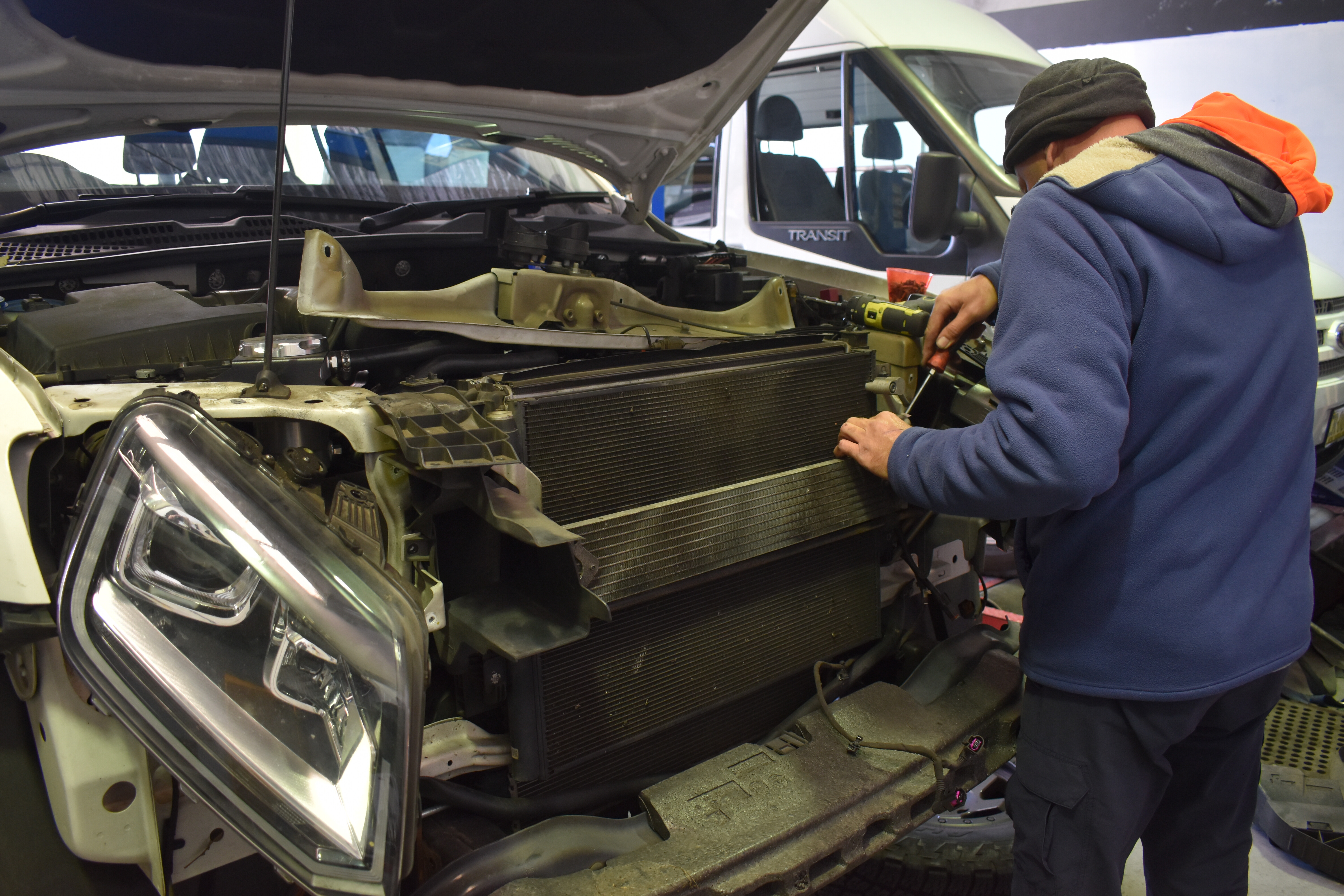
STEPHEN HOUGHTON: “This all depends on the modifications you are performing; however my advice is that it’s obviously better to do it at the same time so you are not constantly going back and forth having to install and remove items, this will cost you more in labour in the long run.”STEVE ETCELL: “In a perfect world, all at once – you buy once and cry once. By doing it bit by bit, this means paying for labour and tuning every time. If you can’t afford to do these upgrades at once though, this is the order I’d do them in:
- Intercooler: In preparation for more boost.
- Turbo: Intercooler is there ready for the boost, and the air-fuel ratio without the bigger injectors will be leaner (diesel, leaner = cooler = safer … the opposite of petrol).
- Injectors: The rest of the set-up is ready for these now.”
Should you get your car dyno-tuned?
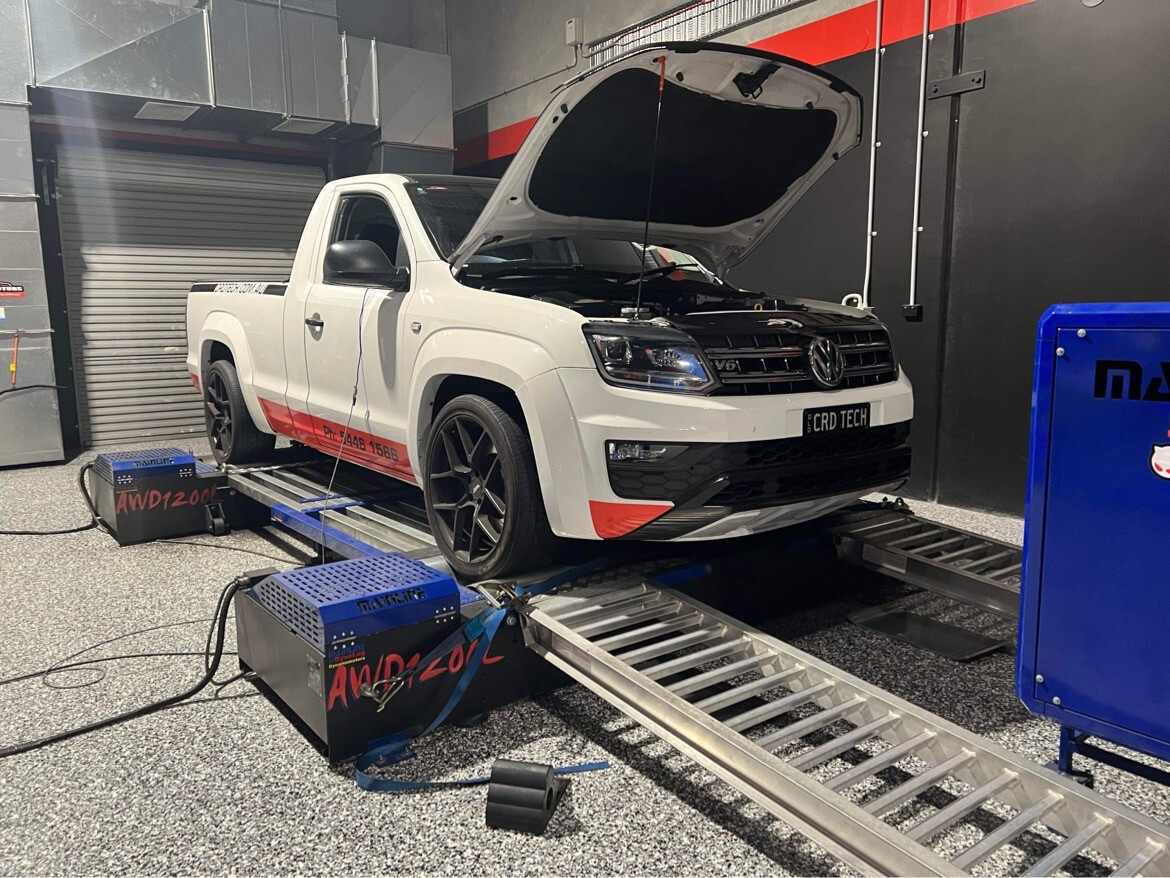
STEPHEN HOUGHTON: “Yes, absolutely, it’s the best practise. But, in saying that, I know heaps of really good tuners that are highly respected, that do both dyno tuning and road tuning.
“As long as the vehicle is being logged correctly on the road and AFR (Air Fuel Ratio) is monitored, you can successfully tune a vehicle on the road if required.”STEVE ETCELL: “Absolutely, definitely 1000 per cent required.”
Does fitting a snorkel change the tune and power figure?
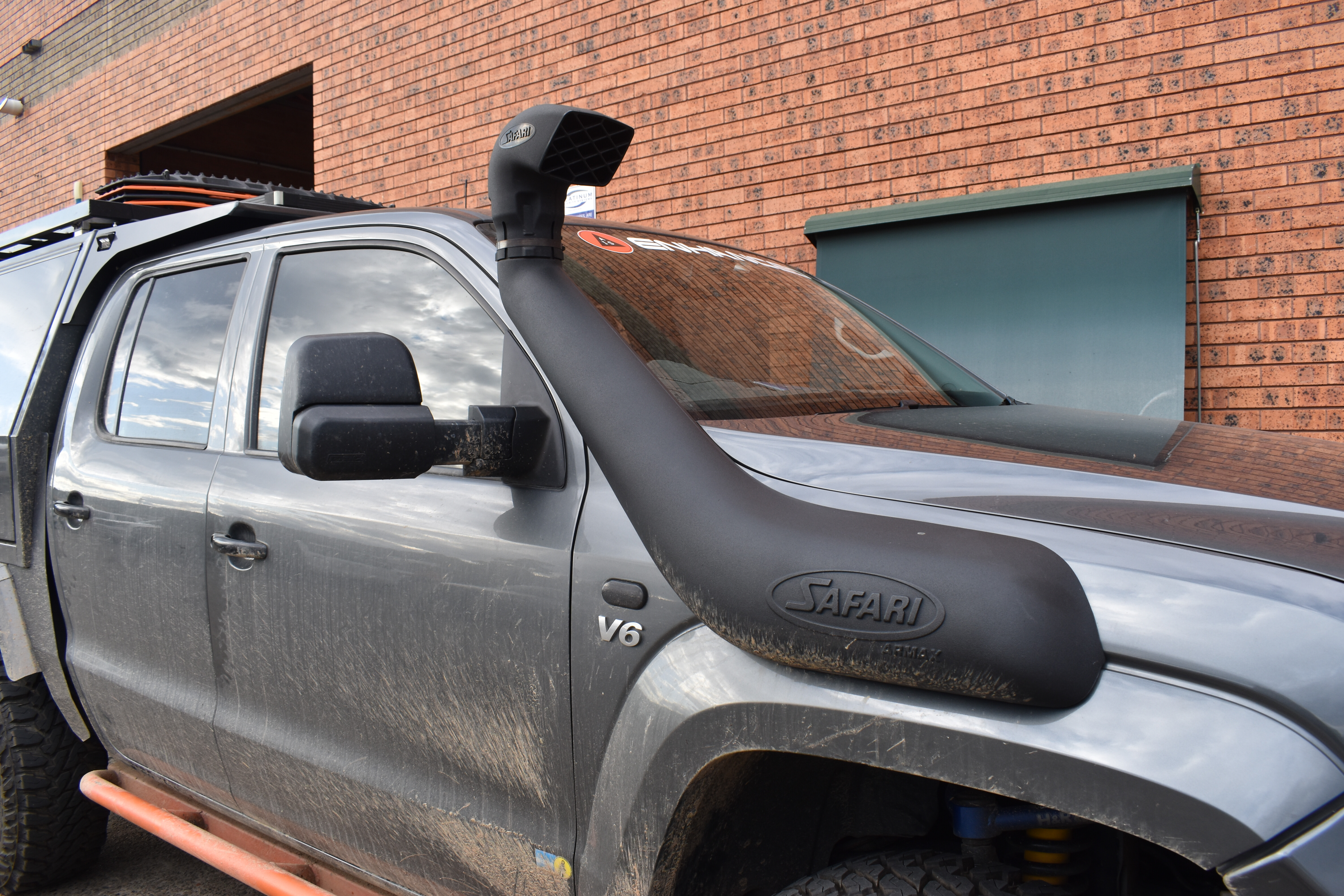
STEPHEN HOUGHTON: “No …”STEVE ETCELL: “Yes, but not significantly enough to warrant a retune. The added cold, higher flowing air will only lean out the air-fuel ratio, meaning everything will run cooler. It won’t be by much though; you will probably only just notice it on the dyno data.”“with vehicle engine mods you aren’t buying a product; you are paying for the knowledge and experience. A remap from XYZ mechanical repairs will be totally different to a specialist tuner that caters for your model”
What supporting mods should you do if increasing your vehicle’s power output? i.e. clutches, trans coolers, etc.
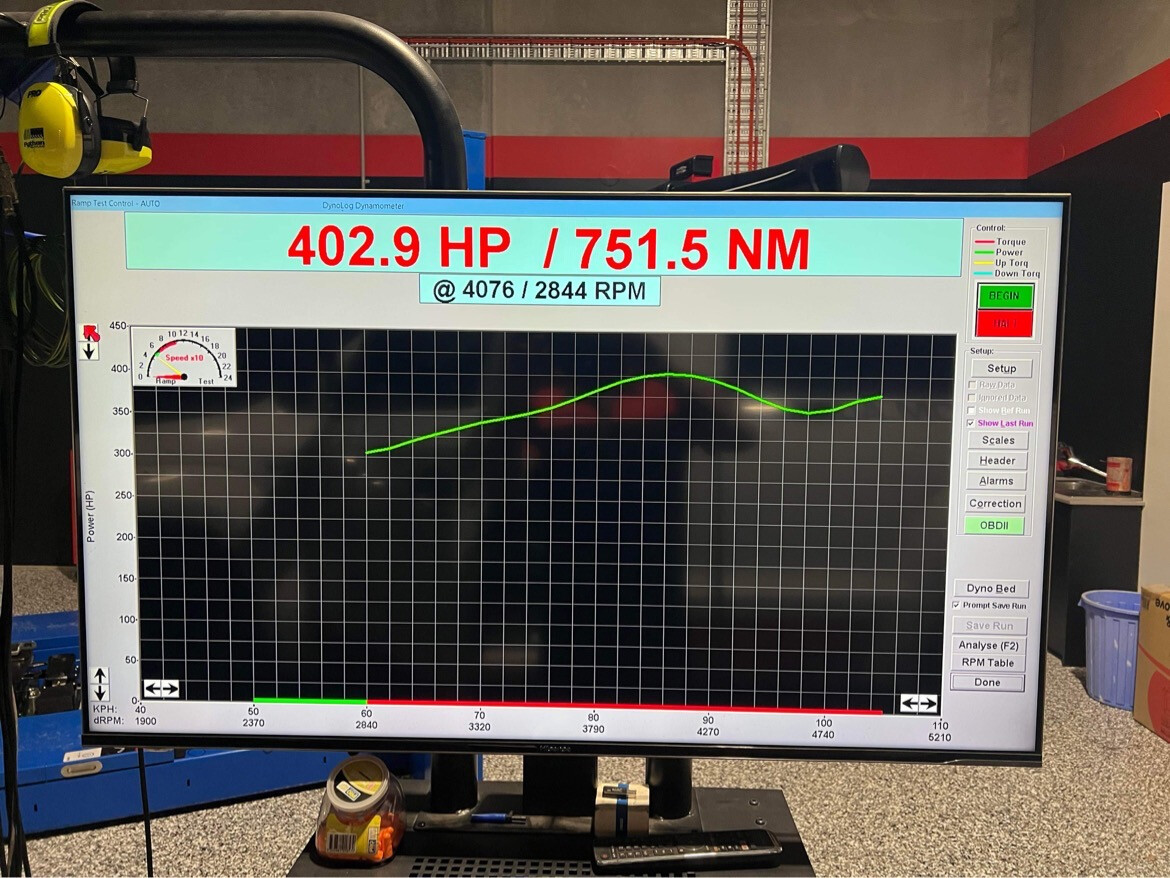
STEPHEN HOUGHTON: “This again is vehicle-dependant; for example, every Toyota 4×4 with a manual transmission we tune needs an upgraded clutch fitted before we tune it. Then if you look at my own V6-powered VW Amarok, it ran 402hp at all four wheels last week with the stock drivetrain, engine, transmission, etc. It made that power running a high-flow turbo, upgraded intercooler and a fuel-metering valve – otherwise stock engine internals, and stock injectors.”STEVE ETCELL: “This is very vehicle-specific, a 79 Series LandCruiser, for example, requires a clutch even with no modifications except for an ECU remap, as the clutch can’t hold the power. Many autos benefit from transmission coolers and transmission tuning but it depends what you have. The best piece of advice here is to find a reputable tuner with experience in your specific vehicle and consult them. Remember, with vehicle engine mods you aren’t buying a product; you are paying for the knowledge and experience. A remap from XYZ mechanical repairs will be totally different to a specialist tuner that caters for your model.”
SPECIAL THANKSA massive shout-out to these turbo-diesel power experts for their time and wealth of information. If you need anything done to your four-wheel drive, be sure to check them out.Stephen Houghton from Coolum Motors/CRD Tech Tuning: Phone: (07) 5446 1566 Website: coolummotors.com.auSteve Etcell from AE-CO 4X4: Phone: (02) 9627 9148 Website: www.aeco4x4.com.auAdvanced Installation Service/Sydney CRD Tech for letting us poke around and take pictures Phone: (02) 4739 9009 Website: www.advancedinstalls.com.au


